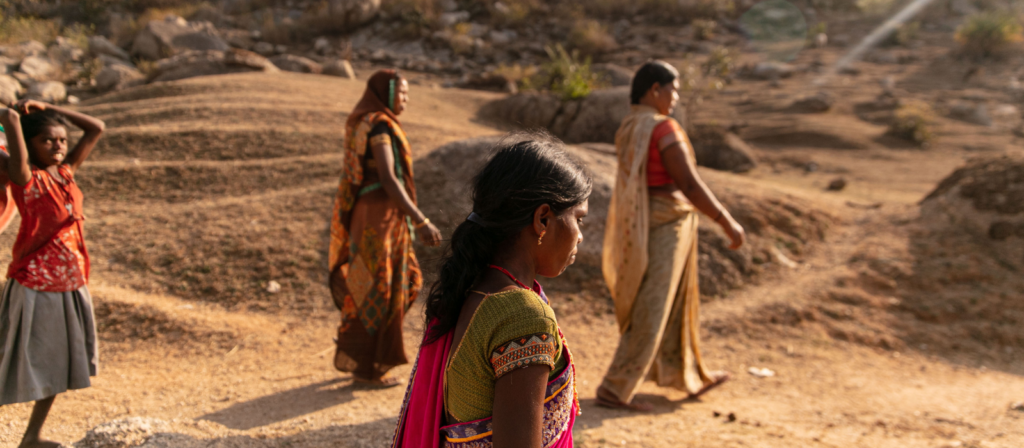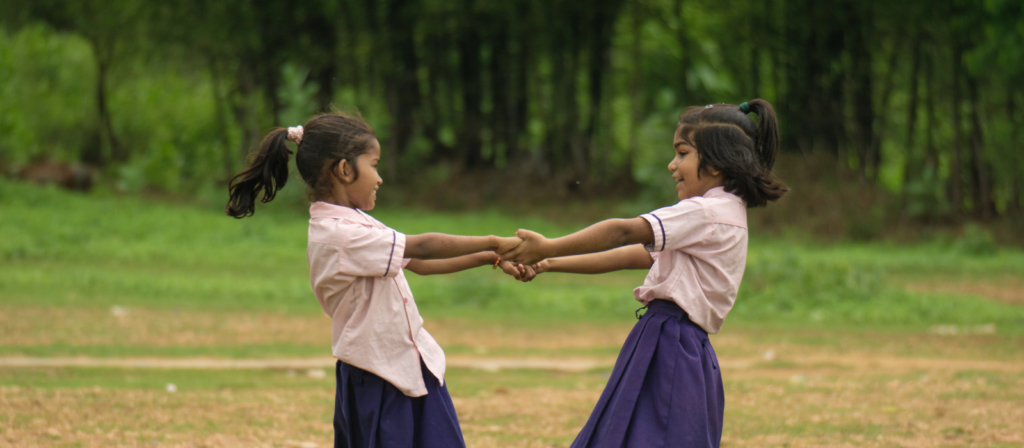As far back as recorded history humans have lived by routines and found comfort in the company of familiar faces. We nurture relationships that focus on our commonalities. However, in the words of Léonor de Récondo, “To refuse encounters with others is to impoverish oneself.”
Each person shares similarities as well as differences. The greater the differences, the stronger the distinction between “us” and “them.” A person growing up on the other side of the world will have some traits and a culture unfamiliar to us. Some differences are observed without creating any negative implications. It is the destructive consequences of negative judgments that separate humans. Since others do not resemble us, they must be treated differently. But are others really so different from us ? Are they really less worthy ? How can we be sure ?
The Single Story
The concept of the single story is highlighted by Chimamanda Ngozi Adichie. The phrase illuminates the issue of reducing people to a single narrative. If you only hear one story of a person living in Nigeria, surrounded by animals and living in makeshift houses, your mind will form a singular image of what life in Nigeria is like. This was the experience of Chimamanda Ngozi Adichie when she went to study in the United States. She was confronted with the single story, her own single story that allowed no room for nuance. Without blaming, the author reveals that she also had reduced people to a single story. She advocates for telling many different stories, so that we might understand the plurality of each individual and avoid creating or reinforcing prejudices. A single story limits each person to a role, forcing individuals into predefined stereotypes, be it that of a woman, a man, a black person, an Arab, a Buddhist, and nothing else can be said about that person.

The consequence of the single story is this: it robs people of dignity. It makes our recognition of our equal humanity difficult. It emphasizes differences rather than similarities.
Chimamanda Ngozi Adichie
Aware of the limitations imposed by the single story, Karuna-Shechen seeks to expand women’s narratives by offering them training in traditionally “masculine” professions. Programs like e-rickshaw provide these women with the opportunity to discover and showcase new aspects of themselves

Discover the stories of Karuna’s women
The varied stories we tell, and those told to us, have the magical power to diversify our perception of the world and its inhabitants. Whereas a multitude of stories following only one narrative seep into our minds permanently shaping our prejudices.
Prejudices
Prejudice is based on preconceived notions: ideas of what the other is like. Without knowing a person, our mind observes a few details and correlates them with past experience, whether personal or not. Our judgment of the person is based on subjective criteria that shape our behavior towards them. From this judgment, each of us adopts a different attitude , the most negative of which is discrimination.
In the animal kingdom, cognitive biases play a crucial role in species’ survival. Imagine a group of primates in the jungle encountering a lion. Because another lion had attacked the group in the past, their animal brains instantly associate the lion with danger, triggering an instinctive response. This cognitive reflex allows for the intuitive recognition of a potential predator. Thanks to this rapid reaction, the primate can alert its group and take measures to avoid imminent danger. This mental mechanism of generalization from a single experience was essential for the survival of the human species, enabling our ancestors to develop avoidance strategies for threats. Over time, the only story told was of the lion that ruthlessly attacked everything in its path. .
In modern times, the risks are not the same, but the human mind has retained this reflex to tell a single story. And when the only ‘true’ story multiplies, it creates stereotypes. ”The problem with stereotypes is not that they are untrue, but that they are incomplete” (Chimamanda Ngozi Adichie). Without seeking to hear other stories, we confine ourselves to discriminatory thought patterns that urge us to distance ourselves from others due to their differences.

Listen to the testimony of Nabina Tamang, a veterinarian for Karuna-Shechen in the Ruby Valley: “In my village, everyone was against women going to school, but things are changing – slowly, but they are changing. However, I am grateful that, although it is conventional for only men in my community to enroll in veterinary school, my father decided to enroll me anyway, defying stereotypes and cultural expectations. Would there be a civilization if there were no women? I often ask myself this question. So why practice discrimination when men and women can work equally?”
Understanding discriminatory thought patterns is crucial for promoting empathy, mutual understanding, and equality. It encourages individuals to question their own perspectives, to listen to others’ experiences, and to work together to create a more inclusive and just society.
Training the Mind

It is much more difficult to judge oneself than others. If you manage to judge yourself well, then you are a true sage.
Antoine de Saint-Exupéry, The Little Prince
It is not easy to become aware of biases we don’t think we have. To understand our biases, it is important to broaden the sources of our knowledge and gradually open one’s mind to new stories. To truly recognize and acknowledge our biases, one must train the mind to welcome new ideas that do not necessarily corroborate our current way of thinking. This is not an easy exercise because when faced with the inaccuracy of our prejudices, our reflex is to reject the information.
“Dare to face the diagnosis: acknowledge the involvement of our emotions, cognitive biases, and the other complexes that condition our way of being in the world, acting, and reacting. By returning to immediate perceptions, focusing on what is happening here and now, we can overcome our prejudices, and also put ourselves in the place of the other, who is caught up in their own mental projections.” – Matthieu Ricard, Training the Mind to Overcome Prejudices
Matthieu Ricard encourages wonder, like a child discovering the world. Without discarding his experiences, he welcomes new ones and incorporates them into the multitude of memories he collects. The difficulty lies in detaching oneself from biases, and developing the ability to embrace new information while setting it apart from what is already stored in the mind. Creating a new place for t other, previously unheard stories gradually completes a transformation.. This is not an exercise without limits, but it allows the mind to expand and marvel when the opportunity arises, sometimes unexpectedly.
By cultivating wonder in the face of novelty, the mind is trained to detach itself from biases and retain only the facts as they present themselves to us. The exercise is not easy and does not rest on the idea of liberating ourselves from our biases but of considering our actions as the product of these biases. In the long run, training the mind will help us become aware of the consequences of our biases on our actions. This is the first step towards changing our behavior towards others.

Committing to Altruistic and Just Relationships
The world is vast, and the stories it tells are countless. To take action, it is important to inform oneself in various ways and discover new stories. Discrimination largely relies on the vertigo that this vastness can provoke, and as a reflex, we tend to resort to the simplicity of prejudice. But without throwing ourselves headlong into it, it is possible to try to discover it step by step, keeping a fresh and benevolent mind. By cultivating wonder and compassion, it becomes easier and easier to open ourselves to stories. On a small scale, each of us can engage in a dialogue with people who, at first glance, are nothing like us. Listening to their stories and telling yours, in all the complexity of existence, is a human richness and a force that unites us all.
(…) A society that values altruism and places the fate of others at the heart of its concerns will strive to correct the inequalities that are sources of suffering, discrimination, difficulty in flourishing in life, and reduced access to education and health.
Matthieu Ricard
To go further :
- S. Clot, G. Grolleau, L. Ibanez, P. Ndodjang, “The moral compensation effect or how ‘good deeds’ can lead to an undesirable situation,” Economic review, vol. 65, 2014. https://www.cairn.info/revue-economique-2014-3-page-557.htm
- J. Suttie, “Three Ways Mindfulness Can Make You Less Biased”. https://greatergood.berkeley.edu/article/item/three_ways_mindfulness_can_make_you_less_biased
- Z. Reese, “Reducing discriminatory attitudes through meditation practice: the role of executive functions”. https://blogs.goucher.edu/verge/reduire-les-attitudes-discriminatoires-par-la-pratique-de-la-meditation-le-role-des-fonctions-executives/
Sources :
- Chimamanda Ngozi Adichie, The danger of a single story. https://youtu.be/D9Ihs241zeg?feature=shared ;
- Kayla J. Fike, Jacqueline S. Mattis, Kyle Nickodem, Casta Guillaume, “Black adolescent altruism: Exploring the role of racial discrimination and empathy”, Children and Youth Services Review, vol. 150, 2023 ;
- Leigh Plunkett Tost, Ashley E. Hardin, Jacob W. Roberson, Francesca Gino, “ Different Roots, different fruits : gender-based difference in cultural narratives about perceived discrimination produce divergent psychological consequences”, AMJ vol. 65. n°6., 2022, pp. 1804-1834 ;
- Matthieu Ricard, Training the mind to overcome prejudices.